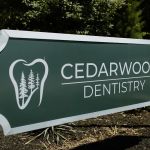How to Avoid Tooth Decay with Proper Oral Hygiene
- 1. Why Tooth Decay Happens
- 2. The Importance of Oral Hygiene
- 3. Steps to Prevent Tooth Decay
- 4. The Role of Diet in Tooth Decay Prevention
- 5. How to Care for Sensitive Teeth
- 6. How Regular Dental Checkups Help Prevent Tooth Decay
1. Why Tooth Decay Happens
Tooth decay is a common dental problem that occurs when plaque – a sticky film of bacteria – builds up on the teeth. When you consume sugary or acidic foods, the bacteria in plaque feed on these sugars and produce acids. These acids can erode the enamel of your teeth, leading to cavities and other dental issues.
Other factors contributing to tooth decay include poor brushing and flossing habits, dry mouth, and inadequate fluoride exposure. If left untreated, tooth decay can cause pain, infection, and even tooth loss, which is why it’s essential to maintain proper oral hygiene.
2. The Importance of Oral Hygiene
Proper oral hygiene is your first line of defense against tooth decay. Brushing your teeth at least twice a day and flossing daily helps remove plaque and food particles, preventing bacteria from building up on your teeth. The goal is to reduce plaque formation and ensure your teeth stay clean and free from harmful bacteria.
In addition to brushing and flossing, using mouthwash can provide extra protection by killing bacteria in your mouth. Regular oral hygiene routines are essential in preventing not just tooth decay, but also gum disease, bad breath, and other oral health problems.
3. Steps to Prevent Tooth Decay
To avoid tooth decay, adopting a thorough and consistent oral hygiene routine is essential. Here are some key steps to follow:
1. Brush Your Teeth Properly
Brushing your teeth with fluoride toothpaste twice a day is one of the best ways to prevent tooth decay. Use a soft-bristled toothbrush and brush for at least two minutes, ensuring that all surfaces of your teeth are cleaned. Don’t forget to brush your tongue as well, as bacteria can accumulate there too.
2. Floss Daily
Flossing removes plaque and food particles from between your teeth and along the gum line where your toothbrush can’t reach. Make it a habit to floss at least once a day, especially before bedtime.
3. Use Fluoride Mouthwash
Fluoride mouthwash helps to kill bacteria and strengthens tooth enamel. After brushing and flossing, swish mouthwash in your mouth for 30 seconds to provide additional protection against tooth decay.
4. The Role of Diet in Tooth Decay Prevention
Your diet plays a significant role in the health of your teeth. Foods high in sugar and acid can contribute to the formation of plaque and the erosion of tooth enamel, increasing your risk of tooth decay. However, there are also foods that help protect your teeth and promote strong enamel.
1. Foods to Avoid
Limiting your intake of sugary foods and drinks, such as candy, soda, and fruit juices, is crucial for tooth decay prevention. Sticky and sugary foods, like gummies and dried fruits, can cling to your teeth, allowing bacteria to feed on the sugars for longer periods.
2. Tooth-Friendly Foods
Incorporate foods rich in calcium and phosphorus, like dairy products, leafy greens, and almonds, which help strengthen tooth enamel. Crunchy fruits and vegetables, like apples and carrots, also help remove food particles from your teeth and promote saliva production, which helps neutralize acids.
5. How to Care for Sensitive Teeth
If you experience sensitivity to hot, cold, or sweet foods, your teeth may be more vulnerable to decay. In such cases, it’s important to use a toothpaste specifically designed for sensitive teeth. These products contain compounds that help block pain signals from the nerves in your teeth.
Avoid brushing too hard, as this can wear down enamel and worsen sensitivity. Use a soft-bristled toothbrush and brush gently to avoid irritation. Additionally, if you experience pain or discomfort, consult with your dentist for advice on how to manage sensitivity while preventing tooth decay.
6. How Regular Dental Checkups Help Prevent Tooth Decay
Regular dental checkups are an important part of preventing tooth decay. Even if you maintain a good oral hygiene routine, your dentist can detect early signs of tooth decay that may not be visible to you. Routine cleanings by a professional help remove tartar buildup and plaque that regular brushing and flossing cannot reach.
During your checkup, your dentist may also apply fluoride treatments to strengthen your enamel and recommend sealants for added protection. Regular visits to your dentist can catch problems early, before they become more serious and require costly treatments.
By staying on top of your oral health, you can avoid tooth decay and keep your smile healthy for years to come. To learn more about how to prevent tooth decay and improve your oral hygiene, visit Dentistry Toothtruth for expert advice and tips.







 Metro Dentalcare West St. Paul4.0 (125 review)
Metro Dentalcare West St. Paul4.0 (125 review) Cedarwood Dentistry5.0 (418 review)
Cedarwood Dentistry5.0 (418 review) Madison Oral Surgery & Dental Implants4.0 (661 review)
Madison Oral Surgery & Dental Implants4.0 (661 review) Blissful Dental4.0 (440 review)
Blissful Dental4.0 (440 review) Community Health Center of Snohomish County - Everett-North Clinic4.0 (960 review)
Community Health Center of Snohomish County - Everett-North Clinic4.0 (960 review) Super Kids Dental4.0 (1678 review)
Super Kids Dental4.0 (1678 review) The Importance of Oral Health Education During Pregnancy for a Healthy Pregnancy
The Importance of Oral Health Education During Pregnancy for a Healthy Pregnancy Best Tips for Brushing Your Teeth Properly for Healthy Gums: Essential Techniques for Oral Health
Best Tips for Brushing Your Teeth Properly for Healthy Gums: Essential Techniques for Oral Health Why Skipping Dental Checkups Can Lead to Bigger Oral Health Problems
Why Skipping Dental Checkups Can Lead to Bigger Oral Health Problems Advantages of Porcelain Dental Restorations
Advantages of Porcelain Dental Restorations How Can Diabetes Cause Tooth and Gum Problems? Preventing and Managing Oral Health Issues
How Can Diabetes Cause Tooth and Gum Problems? Preventing and Managing Oral Health Issues Healthy Habits for Promoting Good Oral Health and Hygiene: Tips for a Healthy Smile
Healthy Habits for Promoting Good Oral Health and Hygiene: Tips for a Healthy Smile